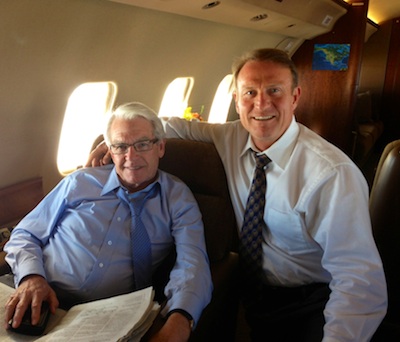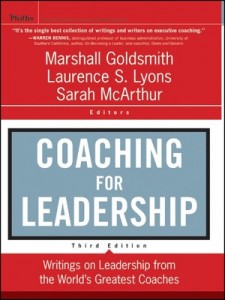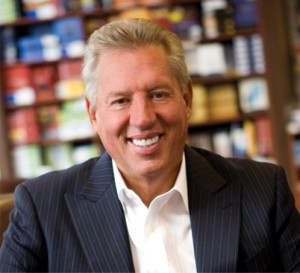Most people can’t recall ever feeling “overvalued” in their lives, can you? Even the world’s most successful people—like Charles Schwab—remember plenty of times that they haven’t felt valued. Here are three things you can do today (and a few things he had to do) to build a great company!
1. Do your Values-based Homework: When we explored the idea of being admired in our research, we realized that while people are usually quite clear about their own values and what they admire, they rarely know much about what the people surrounding them value most. It’s ironic: How can you be admired and valued by those around you if you don’t know what they value? When we asked people nationally in our research whether they felt fully valued – overall, people gave that about a 4 or 5 on a scale of 10. The next natural question is, “How well do you know what the important people in your life actually need and value?” This reveals the disconnect. The respondents gave this only about a 2 or 3! We all expect to be admired and rewarded for our contributions, but we haven’t stopped to consider those who are most critical to us in our lives and whether we know how to be relevant and valuable to them. So in order to become more valued and admired, it’s imperative to ask, “How can I be more valuable to my MVPs?
2. Create your List of MVPs. Being admired is really something that each of us can take on as a mission in our work and personal lives, and it starts with understanding the “MVPs” – Most Valuable People – in your life. Who is it that really matters to you in your life and work? Think about that short list… Who is making you valuable at the office? Who supports you in your mission each day? Who are these people in your personal life? That list may include people that you report to, those who work for you, a team that supports you, your family or friends – it’s the people who enable you to do what you do and be successful. In other words, who would you like to be valued by? And what do these people need from you and value most?
3. Be Relevant. It’s important to understand your MVPs – their motivations and their definitions of success – in order to be relevant and valued in their lives. We often act in alignment with our own personal values and expectations without finding the common ground between our values and the needs and values of the most important people in our lives and work. These questions are pertinent whether you are talking about your relationship with a boss, your company’s customers or your kids. It’s a transformational concept – when you understand what you admire vs. what the MVPs in your life value – and that you understand both the overlap and the differences.
 I had an amazing day last week – I rode with my mentor Charles “Chuck” Schwab, who I worked with for over 12 years in the early days of Schwab when the company was growing rapidly and we took the company public. I was accompanying him on his private jet to visit locations where he has been highly involved in museums and arts education – a cause that is important to both of us. I’ve also spent time with him on causes like dyslexia – another common cause which we are both passionate about. Chuck is dyslexic – in fact, he was almost kicked out of college twice. He had incredibly difficult challenges early in his career starting businesses and keeping them afloat until he realized that the key to his success would be reaching out to others who had strengths that complemented his weaknesses.
I had an amazing day last week – I rode with my mentor Charles “Chuck” Schwab, who I worked with for over 12 years in the early days of Schwab when the company was growing rapidly and we took the company public. I was accompanying him on his private jet to visit locations where he has been highly involved in museums and arts education – a cause that is important to both of us. I’ve also spent time with him on causes like dyslexia – another common cause which we are both passionate about. Chuck is dyslexic – in fact, he was almost kicked out of college twice. He had incredibly difficult challenges early in his career starting businesses and keeping them afloat until he realized that the key to his success would be reaching out to others who had strengths that complemented his weaknesses.
Many entrepreneurs think that they are brilliant at everything and can do everything. He admits that even though he thought that he was a pretty bright guy, it was humiliating to nearly get tossed out of business school. As a dyslexic, you realize very quickly that you need to surround yourself with a great team in order to get everything done. It’s a reality check that everyone learns in business at some point – unfortunately, it’s not until we have head handed to us or we are humiliated in a difficult situation that we realize that we really can’t scale something on our own.
Chuck decided to figure out the MVPs that he would need – he assessed his own skills and those that he would need to add to his team in order to be able to scale his business quickly. When he opened the doors at Schwab, he knew that he needed people who had a passion for the things that he was not good at and to give them ownership of those aspects of his overall vision. And under his leadership, each of us felt that we were an integral part of the success of the company, and Schwab has grown to become one of the largest and most ADMIRED companies in investment services.
Each of us has to figure out who our MVPs are, what they value, and what would really “flip the switch” and make them want to own and grow a business. This is when the magic happens – when you find other people who share your values and vision and are willing to join your cause. It’s what enables an entrepreneur to scale a business, or enables you to create a family and positive life together with others. By identifying your MVPs, understanding their values and criteria for success, and giving your MVPs “ownership” (whether it’s tangible or metaphorical ownership) – not only will they feel valued and rewarded – you will become more ADMIRED as well.
Listen to Mark’s entire interview at “Money for Lunch” on BlogTalkRadio.








 Sir Richard Branson and this great group of entrepreneurs will be responsible for judging the Top 10 ideas, as voted by the public. The winning idea will be announced on 14th May 2012. The lucky winner will join Richard on a money-can’t-buy Connection Trip to South Africa with Virgin foundation, Virgin Unite. As part of the prize, the winner will get to meet frontline leaders who are making a difference, share ideas with young entrepreneurs at the Branson Centre of Entrepreneurship and get to spend several days with Richard and the rest of the group, experiencing the beautiful wildlife of South Africa at Ulusaba, Sir Richard’s private game reserve.
Sir Richard Branson and this great group of entrepreneurs will be responsible for judging the Top 10 ideas, as voted by the public. The winning idea will be announced on 14th May 2012. The lucky winner will join Richard on a money-can’t-buy Connection Trip to South Africa with Virgin foundation, Virgin Unite. As part of the prize, the winner will get to meet frontline leaders who are making a difference, share ideas with young entrepreneurs at the Branson Centre of Entrepreneurship and get to spend several days with Richard and the rest of the group, experiencing the beautiful wildlife of South Africa at Ulusaba, Sir Richard’s private game reserve. passionate about. If you don’t have a job you’re passionate about, you’re flunking a cosmic IQ test,” he imparted.
passionate about. If you don’t have a job you’re passionate about, you’re flunking a cosmic IQ test,” he imparted.